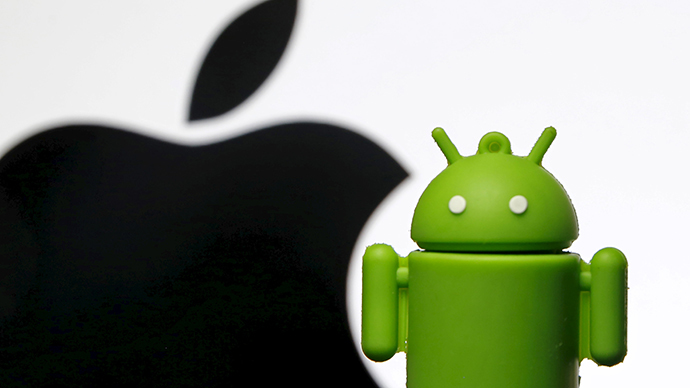US & UK Intelligence pow-wow with IT brass in secretive summit

US and UK Intelligence officials discussed the subject of surveillance with representatives from Google, Apple and elsewhere recently during a closed-door summit.
According to The Intercept, attendees at a secretive
conference held last week on intelligence, security and privacy
by The Ditchley Foundation, an international think tank, included
officials from Silicon Valley and Washington, DC alike.
The three-day conference took place May 14-16 at a mansion in
Oxfordshire, England under rules that prohibit attendees from
discussing who said what to anyone not in attendance, Ryan
Gallagher wrote for The Intercept on Friday.
Among those who sat in during the summit were Google’s legal
director for law enforcement and information security, Apple’s
senior director of global privacy and members of the US Central
Intelligence Agency, the White House’s Intelligence Advisory
Board, the Privacy and Civil Liberties Oversight Board and the
UK’s Government Communications Headquarters, or GCHQ.
Apple & Google just attended extraordinary confidential summit w/ current & former spy chiefs from seven countries: https://t.co/ieS4EZoULl
— Ryan Gallagher (@rj_gallagher) May 22, 2015
A program for the event published by The Intercept suggests
attendees planned on discussing the risks of mass surveillance,
and private sector obligations to cooperate with government
requests, among other topics. They also addressed the question:
“Is spying on allies/friends/potential adversaries inevitable
if there is a perceived national security interest?”
Duncan Campbell, a veteran investigative reporter who attended
the event, told The Intercept that the “remarkable”
gathering that “would have been inconceivable without
Snowden,” the former US National Security Agency contractor
who began disclosing secret documents about government
surveillance programs to the media in 2013.
“Away from the fetid heat of political posturing and populist
headlines, I heard some unexpected and surprising comments from
senior intelligence voices, including that the ‘cold winds of
transparency’ had arrived and were here to stay,” Campbell
said.
Apple and Google Just Attended a Confidential Spy Summit at a Remote English Mansion. http://t.co/nGiobsI5MHpic.twitter.com/0WEiJinxxH
— The Intercept (@the_intercept) May 22, 2015
“Perhaps to many participants’ surprise, there was general
agreement across broad divides of opinion that Snowden – love him
or hate him – had changed the landscape, and that a change
towards transparency, or at least ‘translucency,’ and providing
more information about intelligence activities affecting privacy,
was both overdue and necessary.”
In June 2013, leaked intelligence documents provided by Snowden
revealed that the NSA has been conducting mass surveillance
programs in which Americans and foreigners alike are subject to
government sanctioned eavesdropping. Revelations about the NSA’s
efforts to crack encryption standards and policies implemented by
tech companies the world over have since triggered a rift between
Silicon Valley and intelligence officials. A discussion on the
use of a Patriot Act provision to authorize some of those spy
efforts took center stage in Washington this week, when Senator
Rand Paul (R-Kentucky) led a nearly 10-hour-long filibuster to
raise objections over the NSA’s operations.












